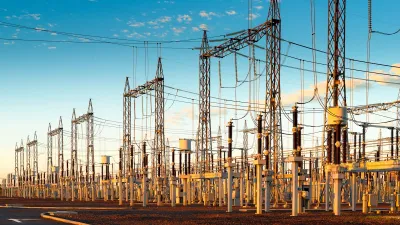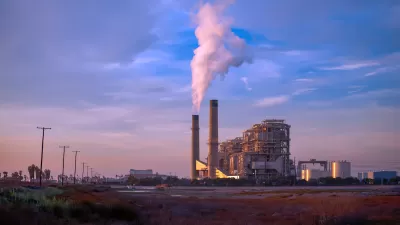The facility, which was completed in just 122 days, was rushed through so quickly, it is still missing environmental permits and infrastructure needed to ensure it doesn’t put stress on the grid or local water supply.

A few months ago, Elon Musk took over a factory in an industrial zone of South Memphis with the goal of building the “world’s largest supercomputer”; last week, just 122 days later, the computer, dubbed the Colossus, was brought online. Its primary purpose is to provide computing power for xAI’s central tool, Grok. But city officials, environmental agencies, and community members, who were kept mostly in the dark during the process, are reeling after the local utility reported that the facility, which Musk has said will eventually double in size, will need a million gallons of water per day and 150 megawatts of electricity — enough to power 100,000 homes per year.
NPR reporter Dara Kerr writes, “The limited oversight and rushed nature of this project have allowed xAI to skirt environmental rules, which could impact the surrounding communities. For instance, the company’s on-site methane gas generators currently don’t have permits.” In addition to sky-high resource consumption, local officials and environmental agencies are concerned about how the additional pollution will impact several adjacent historically Black neighborhoods, who have already been disproportionately burdened by poor air quality caused by existing heavy industrial uses in the area.
The local utility, Memphis Light, Gas and Water, has assured locals that Musk’s supercomputer’s consumption of water and electricity won’t affect them, reports Kerr. But given the secrecy around the project, the fact that many details have yet to be made public (or even worked out at all), and Musk’s tendency to overpromise (at best) or lie (at worst) about his ventures, it’s little wonder residents and local officials are wary.
Concern about water and energy consumption, as well as greenhouse gas emissions, of AI — and the data centers needed to run it — is growing nationwide. A recent analysis by the Guardian showed that greenhouse gas emissions from data centers owned by major tech companies like Google, Microsoft, Meta and Apple are 7.62 times higher than officially reported.
FULL STORY: How Memphis became a battleground over Elon Musk’s xAI supercomputer

Planetizen Federal Action Tracker
A weekly monitor of how Trump’s orders and actions are impacting planners and planning in America.

Maui's Vacation Rental Debate Turns Ugly
Verbal attacks, misinformation campaigns and fistfights plague a high-stakes debate to convert thousands of vacation rentals into long-term housing.

San Francisco Suspends Traffic Calming Amidst Record Deaths
Citing “a challenging fiscal landscape,” the city will cease the program on the heels of 42 traffic deaths, including 24 pedestrians.

Amtrak Rolls Out New Orleans to Alabama “Mardi Gras” Train
The new service will operate morning and evening departures between Mobile and New Orleans.

The Subversive Car-Free Guide to Trump's Great American Road Trip
Car-free ways to access Chicagoland’s best tourist attractions.

San Antonio and Austin are Fusing Into one Massive Megaregion
The region spanning the two central Texas cities is growing fast, posing challenges for local infrastructure and water supplies.
Urban Design for Planners 1: Software Tools
This six-course series explores essential urban design concepts using open source software and equips planners with the tools they need to participate fully in the urban design process.
Planning for Universal Design
Learn the tools for implementing Universal Design in planning regulations.
Heyer Gruel & Associates PA
JM Goldson LLC
Custer County Colorado
City of Camden Redevelopment Agency
City of Astoria
Transportation Research & Education Center (TREC) at Portland State University
Jefferson Parish Government
Camden Redevelopment Agency
City of Claremont





























